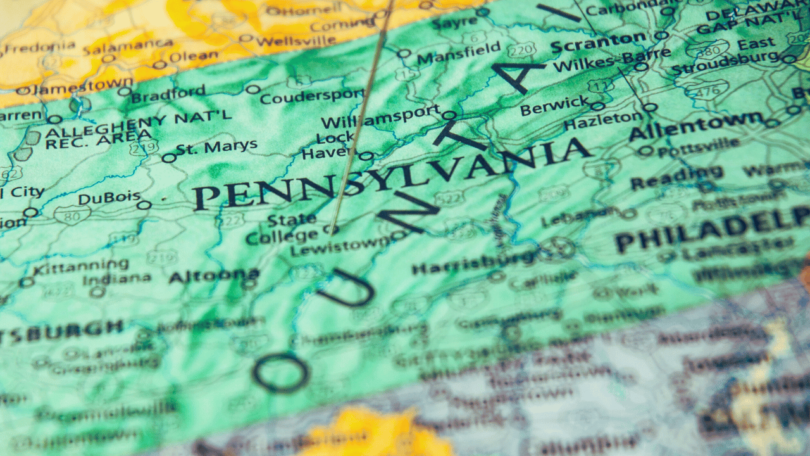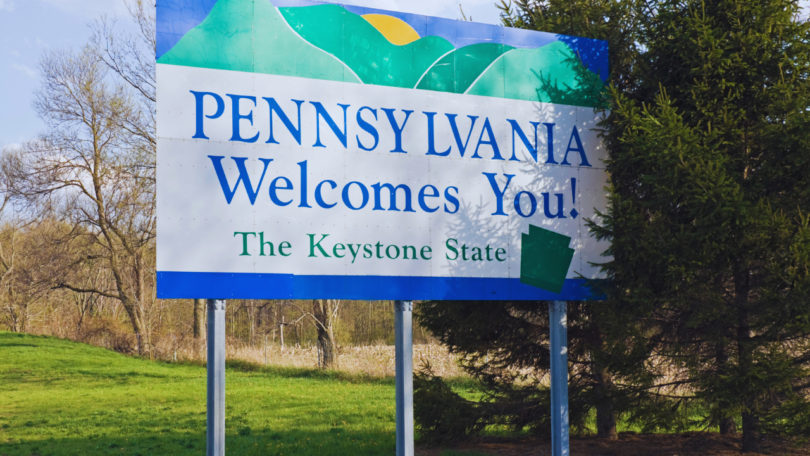Is Sports Betting Legal in Pennsylvania? Everything You Need to Know
Pennsylvania took a proactive approach to gambling expansion, legalizing sports betting in 2017, even before the federal ban was lifted. By November 2018, the first sportsbooks were up and running, offering both in-person and online wagering options.

History of Sports Betting in Pennsylvania
Pennsylvania got a head start on sports betting. While most states waited, lawmakers here were already working on legalization in 2015. Representatives Rob Matzie and Rick Kotik pushed for change, arguing that sports betting would boost state revenue and local businesses.
Their efforts led to House Bill 271 (HB 271), which became law in October 2017. This bill legalized sports betting, online casinos, and daily fantasy sports. But there was a catch—the federal PASPA law still banned sports betting outside Nevada.
That changed in May 2018 when the U.S. Supreme Court struck down PASPA. Pennsylvania moved fast. By November 2018, Hollywood Casino at Penn National Race Course took the state’s first legal sports bet.
Online betting followed in May 2019 with PlaySugarHouse (now BetRivers), Pennsylvania’s first mobile sportsbook. Mobile wagering quickly became the go-to choice for bettors. By 2025, the state had 11+ licensed online sportsbooks, including FanDuel, DraftKings, and BetMGM.
Despite a high 36% tax rate, Pennsylvania remains one of the largest sports betting markets in the U.S. With billions wagered each year and strong regulations in place, its early approach to legalization proved a smart move.
Legality of Sports Betting in Pennsylvania
All sports betting in the state is regulated by the Pennsylvania Gaming Control Board (PGCB), which ensures that sportsbooks operate fairly and follow responsible gaming practices. To legally place a bet, you must be at least 21 years old. While anyone can create an account with a Pennsylvania sportsbook, you must be physically located within the state to place a wager. Online sportsbooks use geolocation technology to confirm your location before allowing bets.
Pennsylvania offers a wide range of betting options, including:
- Moneyline, point spreads, parlays, live betting, and futures
- Professional and college sports wagering (with restrictions)
However, the state does have some betting restrictions:
- No player prop bets on college athletes
- No wagering on esports, political events, or entertainment awards
- No bets on high school or youth sports
Pennsylvania has one of the highest tax rates for sportsbooks in the U.S. Operators must pay a 36% tax on revenue and a $10 million licensing fee to enter the market. Bettors who win more than $600 are subject to a 24% federal tax and a 3.07% state tax, plus a 0.25% federal excise tax on every wager.

Certain individuals are prohibited from betting, including casino and sportsbook employees at their workplaces, as well as athletes, coaches, referees, and vendors with direct ties to sports betting operations.
Recent Developments in Pennsylvania Sports Betting
- [September 4, 2025]: Pennsylvania Regulators Urge NFL Bettors to Use Legal Sites
- [July 31, 2025]: Pennsylvania Lawmakers Target Gambling Promo Deductions to Boost Tax Revenue
- [July 8, 2025]: Sports Betting Alliance Rallies Pennsylvania Fans Against Online Betting Tax Hikes
- [June 23, 2025]: Caesars Sued Over Deceptive Online Casino Bonus in Pennsylvania
- [April 24, 2025]: DraftKings Faces Pennsylvania Lawsuit Over Misleading Promotions
Best Sportsbooks in Pennsylvania
Pennsylvania is home to one of the most competitive sports betting markets in the U.S. With a mix of top-tier online platforms and retail sportsbooks, bettors have no shortage of options. The presence of multiple operators keeps the industry dynamic, pushing sportsbooks to offer better odds, promotions, and user-friendly experiences. Whether you prefer betting in a casino or placing wagers from your phone, there’s a platform that fits your needs.
Top Online Sportsbooks in Pennsylvania
The state’s online sports betting scene features some of the biggest names in the industry, each bringing unique advantages:
- Caesars Sportsbook – Known for competitive odds, frequent promotions, and the Caesars Rewards program. It partners with the NBA and offers a welcome bonus where bettors can place a $1 wager and double their winnings.
- DraftKings Sportsbook – Popular for its intuitive mobile app, wide betting options, and strong daily promotions. New users can take advantage of a “Bet $5, Get $150” welcome offer.
- FanDuel Sportsbook – Offers a top-rated mobile app, creative promotions, and flexible betting options. New players get a “Bet $5, Win $150 in bonus bets” deal.
- BetMGM Sportsbook – Features a variety of betting markets, M Life Rewards, and exclusive NFL parlay options. Its welcome bonus gives users $150 in bonus bets for placing a $10 wager on a winning bet.
- BetRivers Sportsbook – Well-regarded for its iRush Rewards program, hockey promotions, and live betting options. It offers a second-chance bet of up to $500.
- bet365 Sportsbook – Known for quick payouts, excellent live betting markets, and a strong rewards program. New users get a “Bet $5, Get $100” bonus plus 50 free casino spins.
- Fanatics Sportsbook – A newer entry to the market that offers FanCash rewards, which can be redeemed for bonus bets or sports merchandise. It provides “No Sweat Bets” worth up to $1,000.
- ESPN BET – A sportsbook backed by ESPN, offering a deep selection of betting markets and promotions tied to ESPN personalities.
What to Consider When Choosing a Sportsbook
With so many options available, picking the right sportsbook depends on your preferences. Here are some key factors to consider:
- Bonuses & Promotions – Look for welcome offers, risk-free bets, and boosted odds.
- Betting Options – Consider sportsbooks that provide live betting, parlays, and a wide range of sports.
- Mobile Experience – A fast and easy-to-use mobile app can make a big difference.
- Payment Methods – Ensure your preferred deposit and withdrawal methods, like PayPal, credit cards, or bank transfers, are supported.
- Customer Support – Reliable support through live chat, phone, or email is essential.
- Security & Licensing – Only use sportsbooks licensed by the Pennsylvania Gaming Control Board (PGCB).
- Loyalty Programs – Platforms like Caesars Rewards and iRush Rewards give frequent bettors extra perks.
With a regulated industry, top-tier sportsbook options, and exciting promotions, Pennsylvania remains one of the best states for sports betting. Whether you’re a casual bettor or a high roller, there’s a sportsbook that fits your style.
Online vs. Retail Sportsbooks in Pennsylvania: Which One Is Better?
When it comes to sports betting in Pennsylvania, players have two main options: online sportsbooks or retail sportsbooks located in casinos and racetracks. While both are legal and regulated, each offers a different experience depending on what a bettor values most.
Online sportsbooks provide unmatched convenience, allowing players to place bets from anywhere within Pennsylvania as long as they have an internet connection. Whether you’re at home, at work, or on the go, you can access your favorite betting platform 24/7. This flexibility makes online betting the preferred choice for most Pennsylvanians, with nearly 95% of all wagers placed online. Retail sportsbooks, on the other hand, require in-person visits to casinos or racetracks. While this can be an exciting experience, it’s far less convenient, especially for those who don’t live near one of Pennsylvania’s betting locations.
One of the biggest advantages of online betting is the variety of available wagers. Online sportsbooks typically offer more betting markets, better odds, and more live betting options than retail locations. In contrast, physical sportsbooks may have a more limited selection, especially when it comes to niche sports or alternative betting lines. Additionally, online platforms are known for their generous promotions, including sign-up bonuses, risk-free bets, and profit boosts, which are far less common in retail sportsbooks.

Ultimately, the choice between online and retail betting comes down to personal preference. If you prioritize convenience, better promotions, and a wider selection of bets, online sportsbooks are the way to go. If you enjoy the social atmosphere of a casino and the energy of a live sportsbook, then visiting a retail location might be worth the trip.
Promotions and Bonuses: What Pennsylvania Sportsbooks Are Offering
Pennsylvania’s sports betting market is highly competitive, and sportsbooks constantly roll out promotions and bonuses to attract new players and keep existing ones engaged. Whether you’re signing up for the first time or betting regularly, there’s always a way to get extra value from your wagers.
Types of Promotions Available
Sportsbooks offer a variety of bonuses and incentives, each designed to appeal to different types of bettors:
Welcome Bonuses for New Players
- Bet & Get: Place a small wager (e.g., $5) and receive bonus bets worth $150 or more.
- Risk-Free First Bet: If your first bet loses, the sportsbook refunds the amount in bonus credits.
- Deposit Match: The sportsbook matches a percentage of your first deposit, adding extra funds to your account.
- Odds Boosts: Increased odds on specific games, giving higher payouts than usual.
Ongoing Promotions for Existing Bettors
- Profit Boosts: Increase winnings by a certain percentage on select bets.
- Parlay Insurance: If one leg of a multi-leg parlay loses, get a refund in site credits.
- Loyalty Programs: Earn points for betting, redeemable for bonus bets, merchandise, or VIP perks.
- Referral Bonuses: Invite friends to sign up and receive a cash or bonus bet reward.
Timing and Special Promotions
Sportsbooks often release limited-time offers tied to major events like the Super Bowl, March Madness, or the NBA Finals. These may include exclusive contests, bet-and-win guarantees, or themed bonus bets for Pennsylvania’s home teams. Keeping an eye on these promotions can help bettors get extra value on big games.
While sportsbook bonuses can be rewarding, always check the fine print. Most promotions come with wagering requirements, meaning you must bet a certain amount before withdrawing bonus funds. Others may have minimum odds restrictions or expiration dates, so acting quickly is key.
To stay updated on the latest offers, bettors should regularly check sportsbook websites, mobile apps, and social media pages. Many platforms also send exclusive promotions via email or push notifications, ensuring that players never miss out on a great deal.
Responsible Gambling in Pennsylvania: Resources, Tools, and Support
Pennsylvania is committed to promoting responsible gambling and providing players with resources to stay in control. The Pennsylvania Gaming Control Board (PGCB) oversees responsible gaming initiatives, ensuring that operators follow strict guidelines to protect bettors. These efforts include self-exclusion programs, deposit limits, and public awareness campaigns designed to prevent gambling-related harm.

For players looking to manage their betting habits, Pennsylvania sportsbooks offer built-in responsible gaming tools. Bettors can set limits on deposits, wagers, and time spent on a platform.
Some operators also provide session reminders and temporary cool-off periods, allowing players to take a break when needed. For those facing more serious gambling problems, the state’s self-exclusion program enables individuals to voluntarily ban themselves from both online and retail sportsbooks for a period of one year, five years, or for life.
Responsible Gaming Organizations in Pennsylvania
Several organizations provide support and assistance to individuals struggling with gambling addiction:
- 1-800-GAMBLER – A confidential, 24/7 helpline connecting callers with professional support.
- Gamblers Anonymous & Gam-Anon – Peer-led support groups offering meetings and community support for both gamblers and their families.
- Council on Compulsive Gambling of Pennsylvania – A state-based organization providing educational programs, treatment referrals, and intervention services.
- National Council on Problem Gambling (NCPG) – A national organization offering hotlines, online resources, and professional counseling connections.
In addition to player protections, operators in Pennsylvania must follow strict advertising rules to ensure that promotions are clear, responsible, and not misleading. Sportsbooks cannot target underage individuals, and they must prominently display links to responsible gambling resources. The PGCB also monitors compliance, conducting regular audits and assessments to ensure operators are upholding responsible gaming standards.
The key to responsible gambling is recognizing when to take a step back. Players are encouraged to set financial and time limits, avoid betting under the influence, and never treat gambling as a source of income. Pennsylvania continues to lead the way in responsible gaming by providing players with the tools and resources they need to gamble safely and responsibly.
Sports Betting Revenue and Economic Impact in Pennsylvania
Since legalizing sports betting in 2019, Pennsylvania has built one of the largest and most profitable betting markets in the country. The state’s sportsbooks handle billions in wagers each year, with over $8.42 billion bet in 2024 alone. In March 2024, Pennsylvania recorded $800 million in total bets, and the market hit an all-time high in November 2024, with $934 million wagered. The introduction of online betting in 2019 significantly boosted the industry, with more than 85% of all bets now placed online.
The tax revenue generated from sports betting has provided a major financial boost to the state. Pennsylvania has collected over $2.5 billion in total sportsbook revenue, with tax contributions exceeding $200 million annually. Despite having one of the highest tax rates in the U.S. (36%), sportsbooks continue to thrive. These tax dollars support a variety of state programs, including education, gambling addiction treatment, and community initiatives.
Beyond revenue, sports betting has also fueled job creation and local economic development. Retail sportsbooks, like BetRivers at Rivers Casino Pittsburgh, have driven new investments in casino properties, while the expansion of online betting platforms has created employment opportunities in technology, customer service, and regulatory compliance.
Several key factors contribute to Pennsylvania’s strong betting market:
- A large population and strong sports culture with die-hard fans of professional and college teams.
- The rise of mobile betting, which allows users to place wagers anytime, anywhere in the state.
- Integrated online gambling options, which let players seamlessly switch between sports betting and casino gaming.
Even with its high tax rate, Pennsylvania remains one of the top sports betting states in the U.S., proving that a well-regulated market can drive both economic success and consumer engagement.
Sports Teams and Betting Partnerships in Pennsylvania
With a strong sports culture and some of the most loyal fan bases in the country, Pennsylvania has become a hotspot for sports betting. The ability to legally bet on professional and college teams has transformed fan engagement, allowing supporters to place wagers before and during games, making every play even more exciting. Thanks to partnerships between major sports teams and top sportsbooks, betting has become an integrated part of the sports experience in Pennsylvania.

Many of the state’s professional teams have official partnerships with sportsbooks, offering fans exclusive promotions, special odds, and in-game betting opportunities. Some of the most notable partnerships include:
- Pittsburgh Steelers – DraftKings, BetMGM
- Philadelphia 76ers – Caesars, Betway
- Philadelphia Eagles – Caesars
- Philadelphia Flyers – BetRivers, Betway
- Pittsburgh Penguins – BetRivers
- Pittsburgh Pirates – BetMGM
One of the biggest developments in this space has been the creation of betting lounges inside stadiums and arenas. In 2020, BetRivers became the first sportsbook with an NHL-branded betting lounge, opening two locations inside Wells Fargo Center, home to the Philadelphia Flyers and 76ers. These lounges feature live odds boards, self-service betting kiosks, and a sports bar atmosphere, making them a game-changer for fans who want to bet while watching live action.
Beyond professional sports, college betting also plays a role in Pennsylvania’s market. Penn State and Villanova are among the most popular collegiate teams for bettors, particularly during football and March Madness. However, state regulations still prohibit player prop bets on college athletes to maintain the integrity of amateur sports.
Neighboring States’ Betting Laws: How Pennsylvania Compares
While Pennsylvania has built one of the largest and most profitable sports betting markets in the U.S., its neighboring states have taken different approaches to regulation.
Delaware, for example, was ahead of the curve, launching legal sports betting in 2018, right after the PASPA ruling. However, despite its early adoption, the state does not allow mobile betting. Wagers can only be placed in person at Delaware’s three racetracks, limiting convenience for players. Before full legalization, Delaware was known for parlay betting on NFL games, but its sports betting market remains smaller than those of its neighbors.
New Jersey, on the other hand, has been a leader in mobile and online sports betting. The state legalized sports wagering immediately after PASPA was struck down, attracting bettors from nearby states, including New York, before those states launched their own mobile platforms. However, New Jersey law prohibits betting on in-state college teams like Rutgers and Seton Hall, as well as any college events played within state borders. This has led some New Jersey residents to place wagers in Pennsylvania, where such restrictions do not exist.
New York initially restricted sports betting to upstate casinos and tribal gaming venues, but that changed in January 2022 when the state launched mobile betting. Since then, New York’s sports betting handle has skyrocketed, competing with New Jersey and Pennsylvania as one of the most active markets in the U.S.
Ultimately, Pennsylvania remains one of the most attractive states for sports bettors, thanks to fully legalized mobile and retail betting, a wide range of available wagers, and less restrictive regulations on college sports betting compared to states like New Jersey.
FAQ about Sports Betting in Pennsylvania

Is sports betting legal in Pennsylvania?
Yes, sports betting has been legal in Pennsylvania since 2017, when Governor Tom Wolf signed House Bill 271 (HB 271) into law. The first retail sportsbooks opened in November 2018, and online betting launched in May 2019. Sports betting in Pennsylvania is regulated by the Pennsylvania Gaming Control Board (PGCB).
What is the legal betting age in Pennsylvania?
To place a sports bet in Pennsylvania, whether online or at a retail sportsbook, you must be at least 21 years old. This age restriction applies to all licensed sportsbooks operating in the state.
Can I bet online in Pennsylvania?
Yes, online sports betting is fully legal and widely available in Pennsylvania. Bettors can place wagers through licensed sportsbook websites and mobile apps, as long as they are physically located within the state. Sportsbooks use geolocation technology to verify a bettor’s location before allowing bets.
What sportsbooks are available in Pennsylvania?
Pennsylvania offers a variety of licensed and regulated sportsbooks, including:
- DraftKings Sportsbook
- FanDuel Sportsbook
- BetMGM Sportsbook
- Caesars Sportsbook
- BetRivers Sportsbook
- bet365 Sportsbook
- Fanatics Sportsbook
- ESPN Bet
Can I bet on college sports in Pennsylvania?
Yes, Pennsylvania allows betting on college sports, including games featuring in-state teams like Penn State and Villanova. However, player prop bets on individual college athletes are prohibited to maintain the integrity of amateur sports.
How are winnings taxed in Pennsylvania?
Sports betting winnings are subject to both federal and state taxes:
- Federal tax: 24% on winnings over $600
- State tax: 3.07% on all winnings
- Sportsbooks also pay a 36% tax on revenue, one of the highest in the country. Players are responsible for reporting their winnings when filing taxes.
How can I bet responsibly in Pennsylvania?
Pennsylvania provides several responsible gambling tools to help bettors stay in control, including:
- Self-exclusion programs that allow players to ban themselves from betting for a set period.
- Deposit and wagering limits that help manage spending.
- Problem gambling helplines like 1-800-GAMBLER, which offer 24/7 confidential support.
The Pennsylvania Gaming Control Board (PGCB) enforces these measures to ensure safe and responsible gaming.
Recommended
